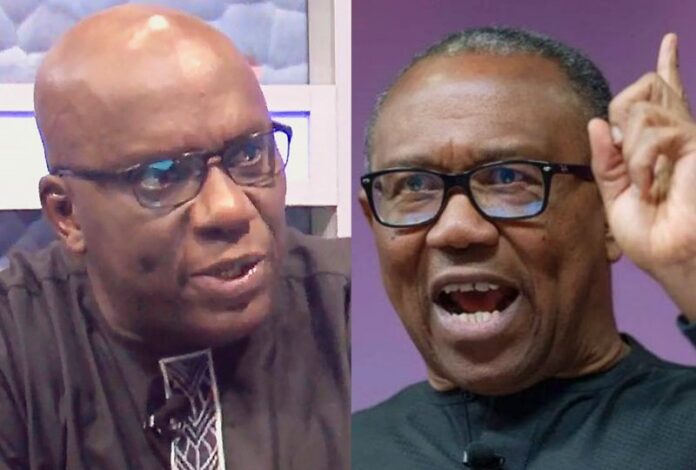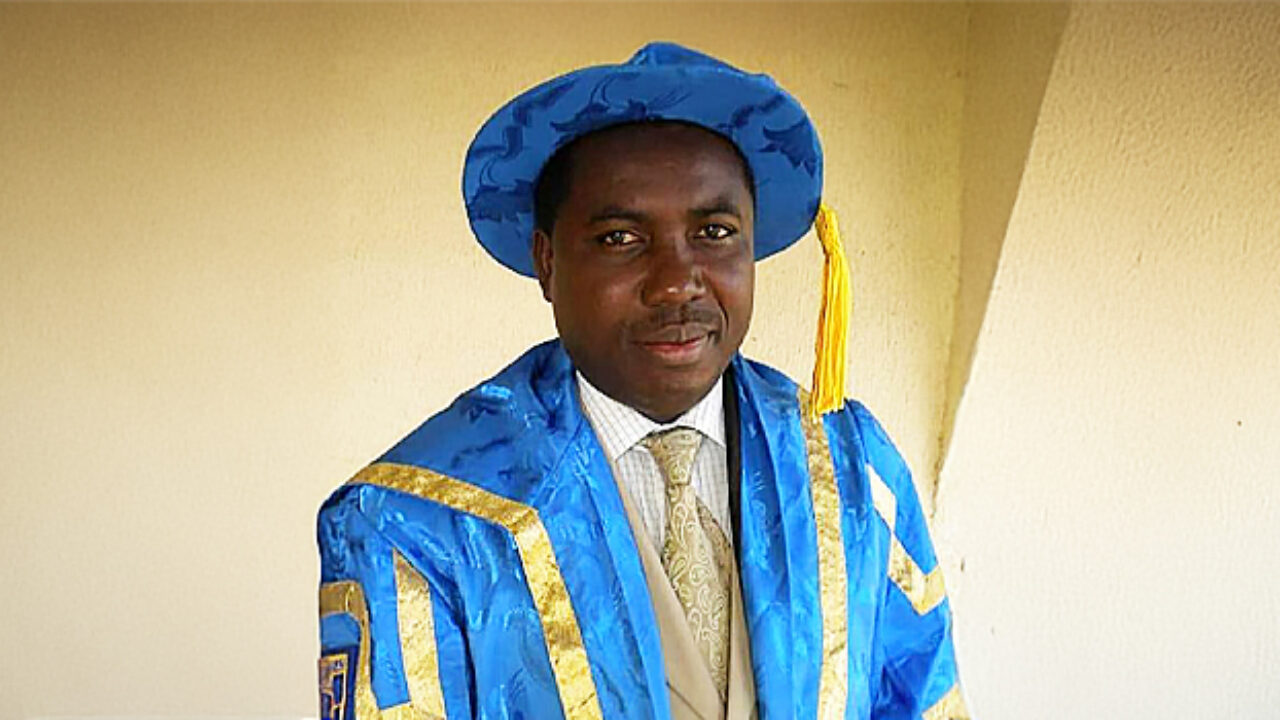Olu Fasan
Everyone is familiar with the famous saying: “The only thing necessary for the triumph of evil is for good men to do nothing.” That saying, attributed to Edmund Burke, is as relevant to governance as it is to other human endeavours. Democracy and good governance are dead in any country without strong and probing opposition political parties, a feisty and fearless press and a vibrant, no-nonsense civil society.
Unfortunately, these guardrails are paralysed in Nigeria. Survival instincts, narrow self-interest and other primordial considerations prevent people, including otherwise respected leaders of society, from speaking truth to power. The Bible says in Isaiah 5: 20: “Woe to those who call evil good and good evil.” Sadly, Nigeria is suffused with too many people who call evil good and good evil. Therefore, it is imperative that the few who are willing to put their heads above the parapet and speak truth to power, as this column seeks always to do, are commended rather than vilified, threatened or silenced.
That’s why every patriotic and well-meaning Nigerian should unreservedly condemn the appalling and abominable vituperations of Felix Morka, the National Publicity Secretary of the ruling All Progressives Congress, APC, who so crudely, so sordidly, threatened Peter Obi, the Labour Party candidate in the 2023 presidential race, for daring to ventilate the well-known failures of the APC-led Tinubu administration in his New Year’s message.
Rattled by Obi’s message, Morka said on Arise News TV: “Obi has crossed the line so many times,” adding ominously, “whatever he has coming to him, he should manage it.” After Obi said that Morka’s inciting comment had led to threats against his life and family, the APC chieftain denied threatening Obi’s life, saying half-wittedly: “He who alleges must prove.” Really? Whose intelligence was he insulting? “Whatever he has coming to him, he should manage it” is a dog whistle, an inflammatory comment that puts Obi in harm’s way. Elsewhere, in civilised societies, the police would invite Morka for questioning.
But how exactly did Peter Obi cross the line with the New Year’s message? I read the message, it’s evidence-based and factual, using unassailable statistics to expose the failures of the government of Bola Tinubu, Nigeria’s rudderless and out-of-touch president. In several interventions in this column, I said what Obi said in his message. So, the only “line” Obi “crossed” was telling Tinubu and his party, APC, what they didn’t want to hear.
But as it is in law, so it should be in politics: “telling the truth can never be defamatory [or cross the line], however unworthy the motive”, as the Oxford English Law says. Besides, it is not Obi’s duty, as a leading opposition politician, to make Tinubu and his government feel comfortable; rather it is his duty to hold their feet to the fire, whatever the political motive. That’s the role of political opposition in genuine, functional democracies.
Take the UK. The current Labour government of Sir Keir Starmer has 411 out of the 550 seats in parliament, a 174-seat majority, while the Conservative Party has only 121 seats. Yet, anyone watching Prime Minister’s Questions in the UK House of Commons would have noticed how Kemi Badenoch, the Tory leader, constantly harangues the prime minister, needling him and seeking to make his political life hellish.
In America, whose presidential system Nigeria claims to be practising, Democratic legislators don’t behave as poodles of a Republican government, and Republican legislators don’t act as stooges of a Democratic government, even though there are instances of cross-party consensus. Neither in the UK nor in the US would a governing party accuse the opposition of crossing the line for launching robust, if opportunistic, criticisms because they, too, did the same, or would do the same, in opposition. Here in Nigeria, APC ruthlessly attacked successive PDP governments when they (Tinubu and his APC henchmen) were in opposition. Now in power, they are utterly intolerant of opposition of any hue!
Truth is, as I wrote last week, Nigeria, under Tinubu, is effectively a one-party state. Think about it. In the 2023 general election, opposition parties won 184 of the 360 seats in the House of Representatives, making APC a minority party with 176 seats; in the Senate, opposition parties won 50 of the 109 seats, while the APC won 59. With such a make-up, one would expect robust opposition in the National Assembly to hold Tinubu and his government up to scrutiny, as would happen in credible democracies with proper separation of powers and checks and balances. Sadly, what Nigeria has is a supine, rubberstamping National Assembly where opposition legislators have either decamped to the ruling party or are simply too docile, swallowing everything Tinubu throws at them hook, line and sinker!
By the way, where are the opposition parties? Well, PDP is as dead as a dodo, having been crippled by Nyesom Wike, known for his political brigandage as Rivers State governor and now as the buccaneering minister, nay “emperor”, of FCT, Abuja, doing the bidding of Tinubu and the APC ahead of another battle royale in 2027. As for the Labour Party, it exists only as a skeleton; the party has suffered internal convulsions and several of its legislators have decamped to APC. Truth is, in a political system where virtually everyone has a price and most politicians can only survive on patronage, it’s hard to find principled politicians, especially with a president who is a ruthless master of patronage and prebendal politics.
But what about freedom of expression and of the press? In theory, the Constitution guarantees both. Section 22 says the press “shall at all times be free to uphold the responsibility and accountability of the Government of the people”, and section 39 states: “Every person shall be entitled to freedom of expression, including freedom to hold opinions and to receive and impart ideas and information without interference.” However, despite those constitutional guarantees, official intimidation and violence against journalists are rampant. According to Media Rights Agenda, “between May 2023 and April 2024 [under Tinubu], there were at least 45 attacks on journalists and media houses.” Thus, Nigeria is not just a one-party state, but also a police state!
The foregoing is why Obi’s strong political opposition is valuable. Nigeria needs leaders in politics, media and the wider society to speak truth to power. Any attempt to silence those voices must be condemned, as we must condemn APC’s attacks on Peter Obi!



























































